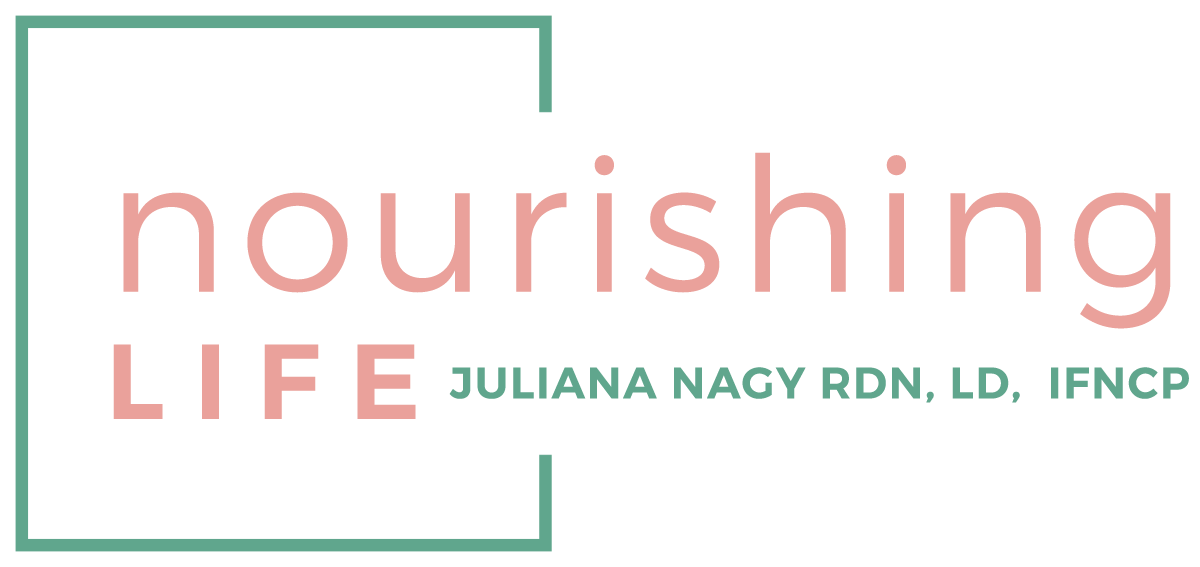Before diving into all the reasons to stop dieting, let’s clarify the difference between a diet and dieting.
According to Merriam Webster dictionary, diet is defined as food and drink regularly provided or consumed; habitual nourishment; the kind and amount of food prescribed for a person or animal for a special reason. Whereas the act of dieting is defined as: to cause to take food; to cause to eat and drink sparingly or according to prescribed rules.
The dieting mentality is associated with a variety of physical and emotional health risk that won’t lead to lasting weight loss and in the long run, could be more detrimental to your health. This month I’m sharing a few reasons not to go on a diet and how you can shift typical diet mentality thoughts into creating a healthy relationship with your daily diet, ultimately creating a healthy lifestyle.
Here are the reasons:
Dieting actually leads to weight gain. As counterintuitive as it sounds, dieters are more likely to gain weight after the diet than non-dieters. Dieting (aka restricting), triggers an increase in stress hormones which is also linked to weight gain. The rules and restrictions that come with diets have you ignoring and suppressing your body’s natural hunger cues. Over time, this can make you more vulnerable to binge eating and less intuitive about listening to your body’s internal hunger and fullness cues that help naturally regulate weight.
Dieting can slow down your metabolism. Restricting calorie intake can lead to weight loss, however, the drop is due more to a loss in metabolically active muscle mass than actual fat loss. By losing muscle, there is a decrease in the amount of energy the body needs to maintain its weight, meaning a slower metabolism. A slow metabolism burns fewer calories at rest and therefore you have to eat less to avoid gaining weight.
Dieting often means numbers trump nutrition. When following a diet, you are often most concerned about calories than anything else. This leads to eating foods based off a number rather than actual nutrition, and let’s face it, not all calories are created equal. A hundred calories of Swedish fish isn’t the same as a hundred calories of Greek yogurt and fresh berries. Foods labeled as “reduced-fat” often means more sugar or other additives to make it palatable. Taking out the fat means taking out some of the flavors, and eating foods with less flavor often leads to consuming more to feel satisfied. By just focusing on calories, you lose sight of the nutrition your body needs. However, eating a balanced diet takes into account the nutrition that is essential for regulating hormones, fighting diseases, managing cravings, and giving your body energy to thrive.
Dieting sets off a self-shaming cycle. Beyond the negative physical and health consequences, dieting can have a negative impact on your psychological health and wellbeing. You start your new plan feeling good and optimistic that these rules and restrictions will help you reach their goals. During the first week, you lose a few pounds and you are motivated this will continue. Then you hit a plateau, the scale does not budge. You begin to feel frustrated that your weight is not changing as fast as promised or expected. This leads to feeling upset and maybe a little depressed, feelings of deprivation start to creep in and eventually you give up. You eat something “off limits” from the diet rules, this leads to a binge followed by feelings of despair, shame, and frustration. These feelings lead back to the cycle of dieting -> deprivation -> overeating -> feelings of shame and unworthiness. Over time this cycle can be extremely detrimental to your mental and physical health and this is a big reason diets don’t work!
Dieting can lead to eating disorders and disordered eating. “Diets” have you depending on rules telling you what, when, and how much to eat. While this works for a short period of time, eventually you will fall off the diet. Falling off your diet intensifies the feelings of guilt and shame, which contributes to the cycle of restricting, purging, bingeing or excessive exercise. Over time this can develop into a serious eating disorder, leaving you with long term disordered eating habits. Other side effects of dieting include increased risk of depression, decrease in self-esteem, emotional distress and more weight gain.

